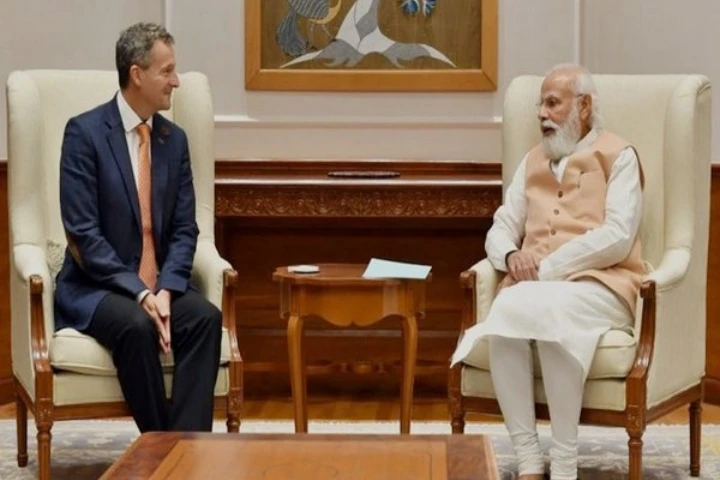India has emerged as the top-performing nation among G-20 countries in the latest QS World University Rankings, showcasing a 14 per cent year-on-year improvement in the average ranking of its universities. In a LinkedIn post Nunzio Quacquarelli, President Quacquarelli Symonds said that in terms of research output, India has become one of the world’s most rapidly expanding research centres.
From 2017 to 2022, its research output surged by an impressive 54%, making it the world’s fourth-largest producer of research.
Quacquarelli says India’s Higher Education progress on the global stage has undoubtedly been aided by visionary policies such as the National Education Policy (NEP) 2020, spearheaded by Prime Minister Modi.
“I had the honour of meeting the Prime Minister to discuss global higher education trends. During our engaging conversation, it was evident that PM Modi has a passionate commitment to revolutionise Indian education, reflected in the ambitious targets within the NEP,” Nunzio Quacquarelli, President Quacquarelli Symonds said in his post.
The latest Subject Rankings from QS show that these targets are beginning to manifest in the significant presence and enhanced performance of Indian universities. According to Quacquarelli analysis covered over 1,500 plus universities in 96 countries, showcasing excellence in 55 academic subjects and five faculty areas.
India now ranks prominently across in 44 out of the 55 QS Subject Rankings. Standout performances were noted in Computer Science, Chemistry, Biological Sciences, Business Studies, and Physics, among others.
The Institutes of Eminence (IoE) contributed 47 of the 69 Indian university positions within the top-100 in any of the Subject Rankings. Across Asia, India now holds the second-highest number of featured universities in the QS Subject Rankings, behind China.
“Congratulations to all the universities, their administrators, faculty, and students who have worked tirelessly to achieve these remarkable results. The future of Indian higher education is bright, and it is a privilege to watch this transformation unfold,” Nunzio Quacquarelli wrote in his post.
In tandem with India’s rise in global education rankings, the Modi government has introduced the New Education Policy (NEP) 2023, signaling a significant overhaul of the country’s educational structure.
A key change in the NEP is the transition from the traditional 10 + 2 educational systems to a more comprehensive 5 + 3 + 3 + 4 structure.
Under the new arrangement, education will be divided into four stages- the first covering primary to second grade, the second for third to fifth grade, the third for sixth to eighth grade, and the final stage for ninth to 12th grade.
This restructuring aims to provide a more holistic and flexible approach to education, catering to the diverse needs of students across different age groups.















